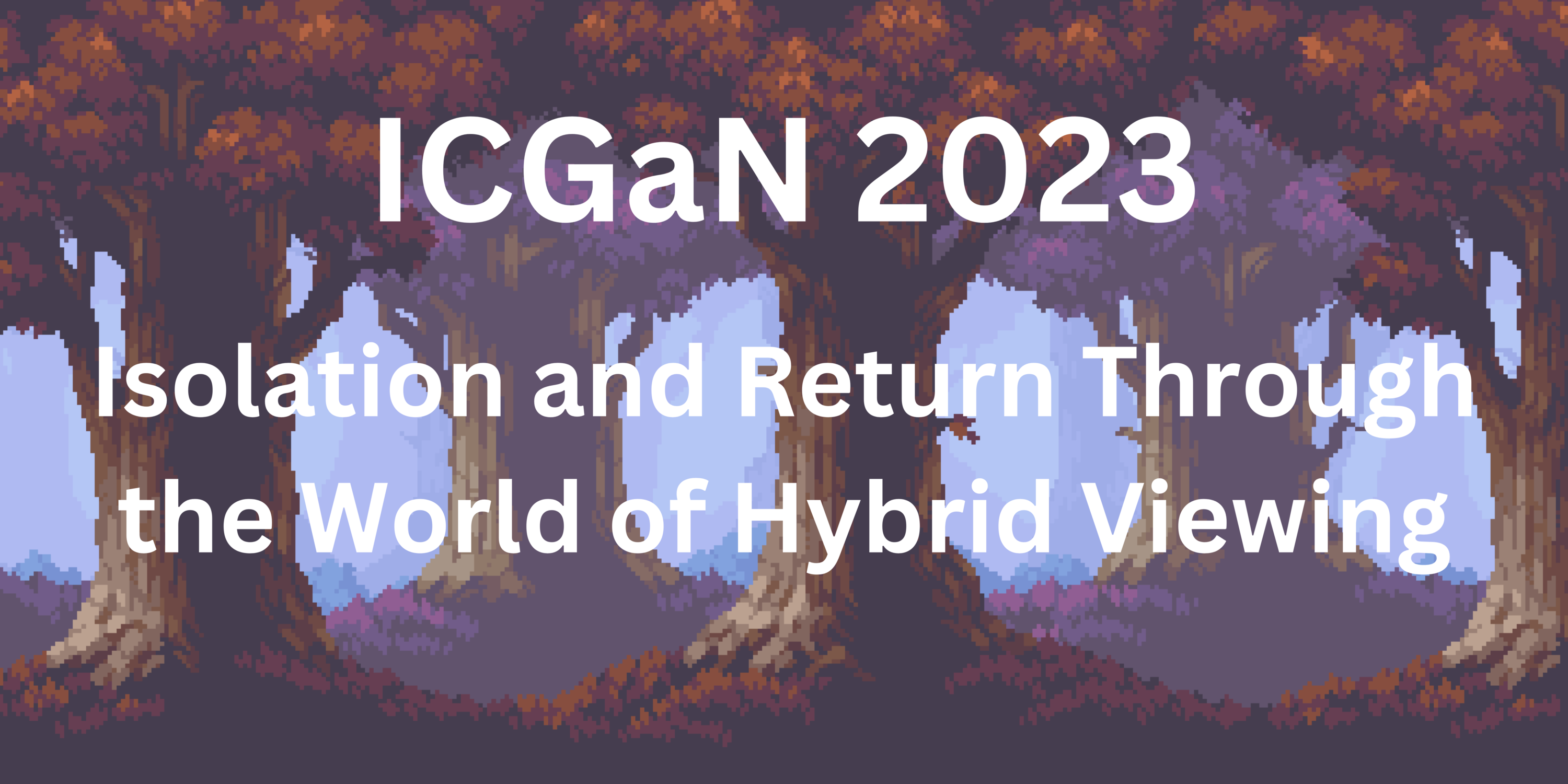
From May 15 – 19, 2023, the Games Institute (GI) hosted the second International Conference on Games and Narrative (ICGaN). It focused on the theme Isolation and Return: The Making of Narrative Worlds. Speakers from 40 universities joined from around the world explained how, societally, we have all been forced to consider and rethink personal and communal lives necessitated by the COVID-19 pandemic. The final turnout of the 2023 conference resulted in 17 sessions, 47 unique presentations, 5 keynotes, 3 workshops, 4 academic game streams, and a game jam.
Entering into the second iteration of ICGaN required a lot of consideration as to how it would be organized. Since the COVID-19 pandemic began in 2020, it has greatly impacted how emerging and established scholars can share their work with wider audiences and gain valuable connections that often lead to opportunities for further education, research assistantships, and jobs. Many conferences turned exclusively to virtual formats, including the first iteration of ICGaN hosted in 2021, before conferences began to re-consider in-person activities. However, a large part of any conference is the in-person experiences and networking opportunities people can enjoy.
Sitting down with Alex Fleck and Lindsay Meaning (both PhD students in English, members of the GI and the Organizing Committee), we take a closer look at ICGaN, the highlights of the 2023 conference, and the future direction of the series as a whole.
A Conference from the Ground Up
ICGaN began within a small reading group led by Drs. Ken Hirschkop and the GI Executive Director, Neil Randall (both faculty of English). The Games and Narrative Research Group started 2020 as a way for graduate students in games studies to discuss narrative theory while applying it to games. There are many ways to tell stories in games depending on the intended purpose of a game. This group would consider how game mechanics interact and impact linear storytelling motifs and the different ways in which stories can be built in games from linear games to massive open-world games. Eventually, the Research Group decided to put together a conference around this subject.
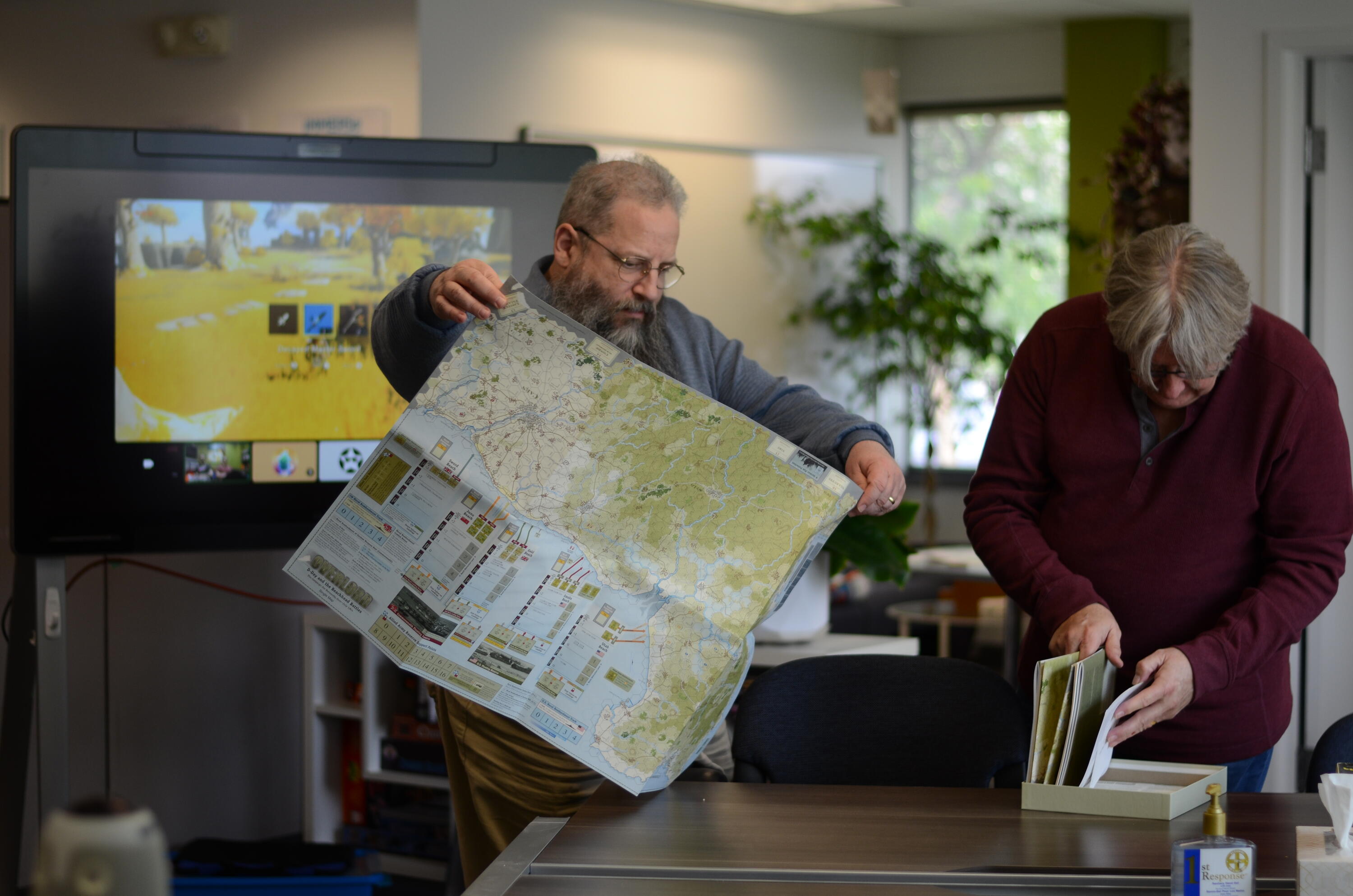
Alex and Lindsay were both members of the Research Group, and when the discussions of managing a conference surfaced, they both saw it as an opportunity to be a part of something unique among other games studies conferences. They joined the ICGaN Organizing Committee, along with other graduate students, to plan, organize, and run the conference, all the while balancing their responsibilities as students. It would allow for participants and submissions to interpret narrative in games as something that was delivered either through the actual mechanics and gameplay of the game or as something inherent to the story.
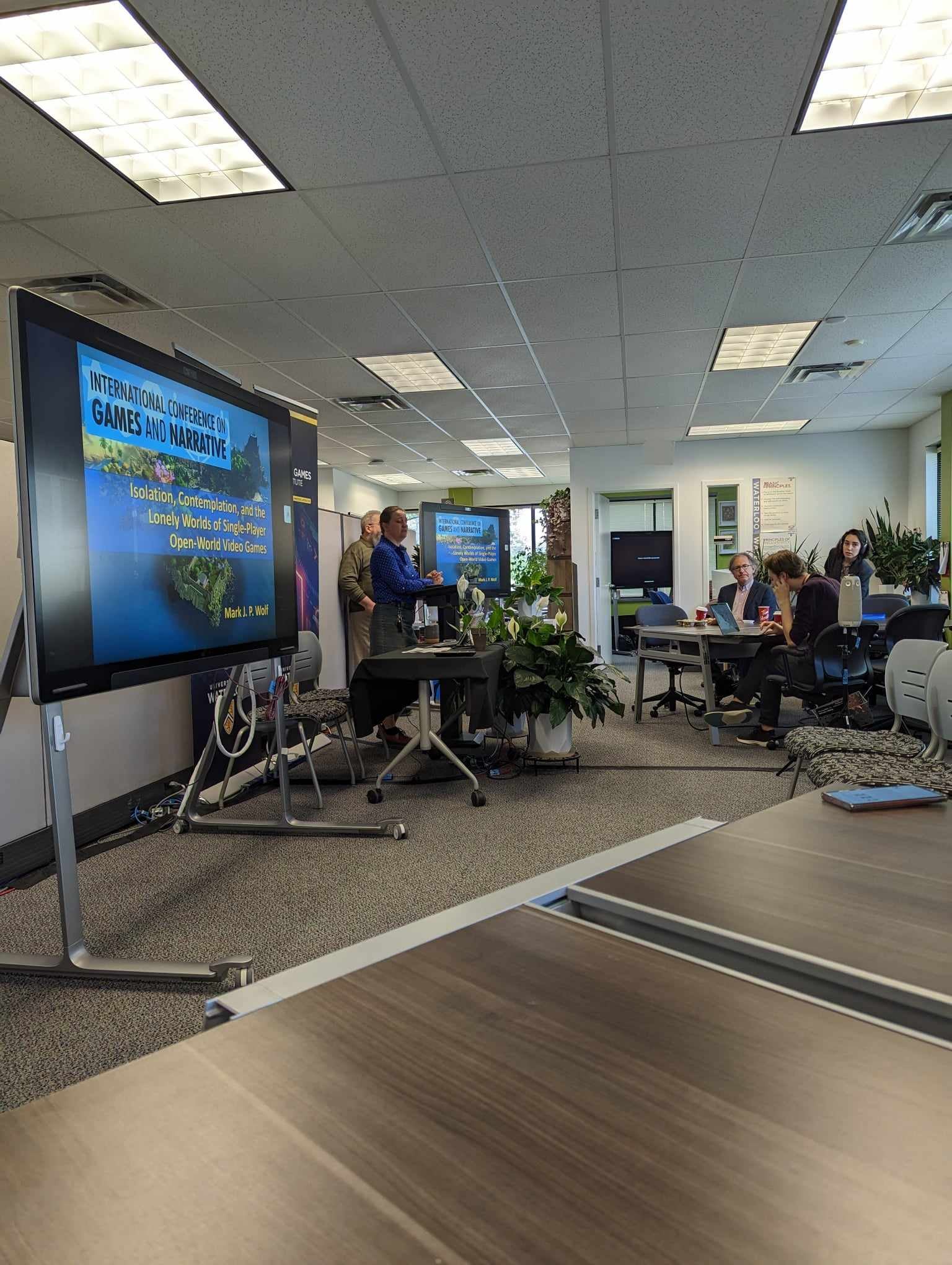
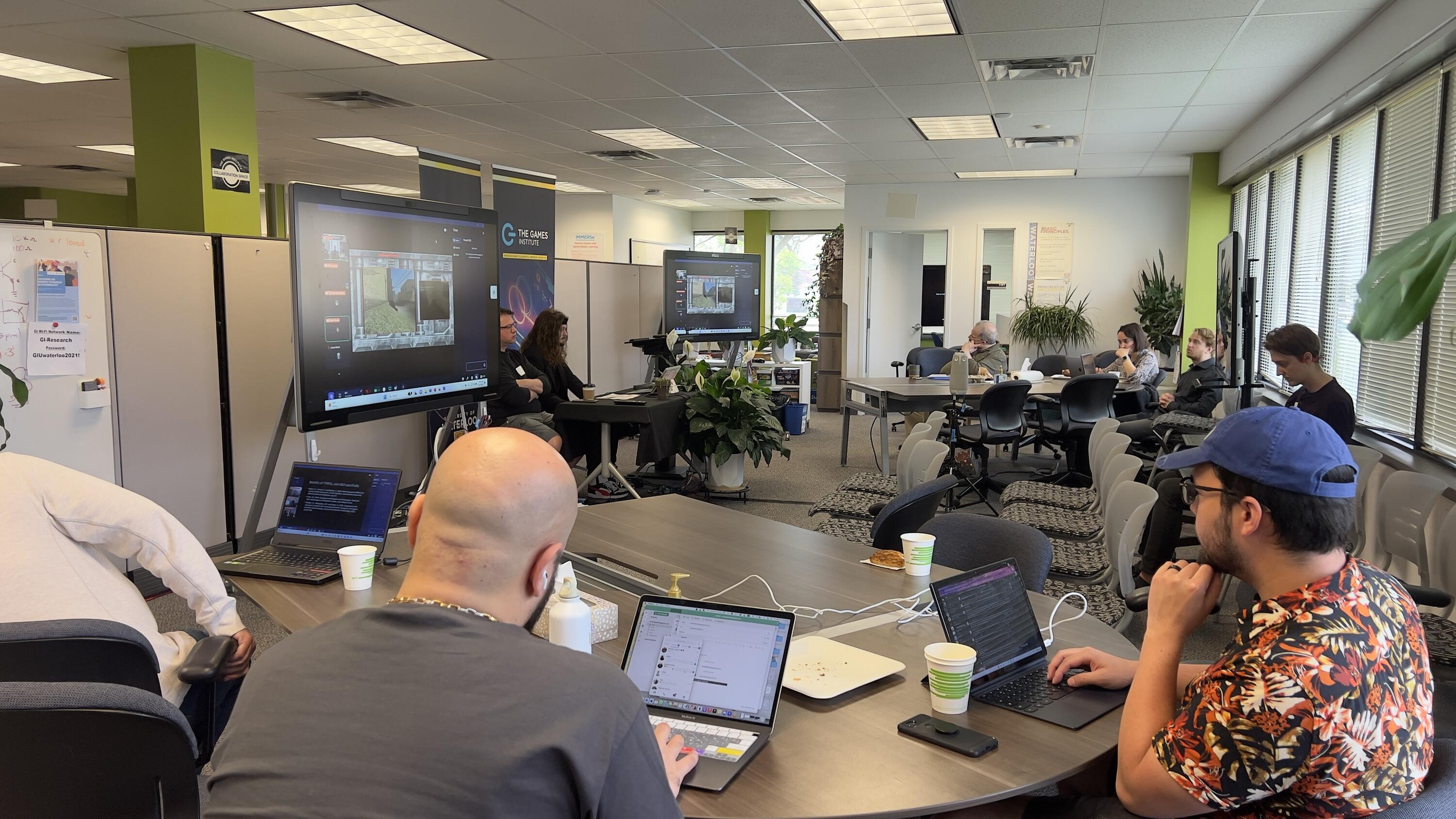
After the resounding success of the inaugural conference in 2021, the Organizing Committee settled on a bi-annual schedule with the second conference to take place every two years to accommodate for the schedules of graduate students and give them the time they needed for their own research and studies. As 2023 came around and many COVID-19 restrictions began to lift, the next question they had to answer was: do they continue with a virtual format or push for in-person attendance?
The Challenging Necessity of Hybridity
Upon reflecting on the fully virtual format of the 2021 conference, Alex and Lindsay both saw room for improvement. For Lindsay, it was an issue of no one wanting to socialize online. “Online spaces are really great for the academic part of the conference,” she said. “But it’s hard to know when to say something.”
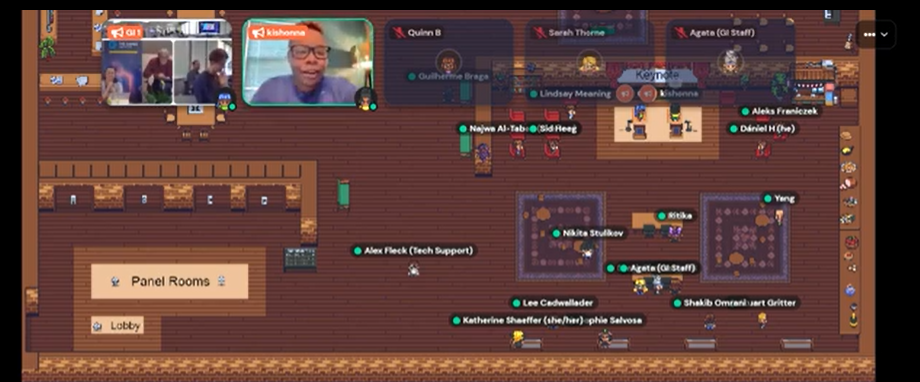
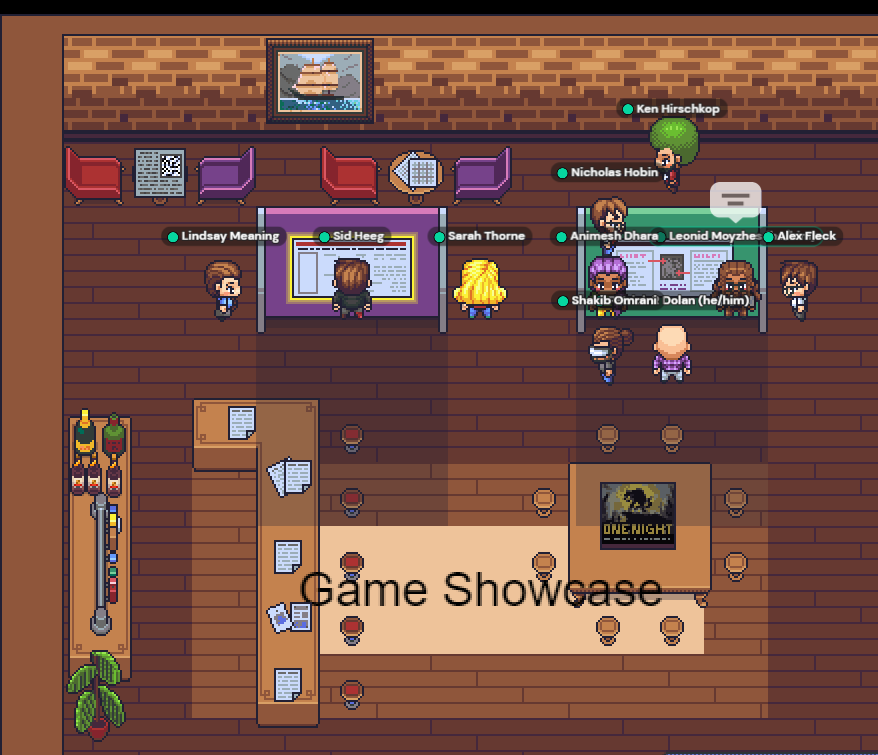
Maintaining a virtual presence remained an important aspect of the conference’s logistics as the Committed discussed moving towards a hybrid format. While many of the in-person aspects of conferences—such as the interactions, socialization, and networking—had been missed since the start of the pandemic, travel wasn’t a reality for everyone who wished to take part. Financial and environmental concerns added to the considerations. The damaging effects of social isolation and how many vital conferencing aspects were untranslatable in an online format had to be balanced with the need to have the conference truly accessible. In the end, the decision came down to make it hybrid with more questions and considerations to take into account.
Suddenly, the hybrid format involved double the amount of work and physical labour compared to what was required for a fully virtual conference. As the virtual spaces on Discord and Gather were being built, the Organizing Committee, volunteers, and GI administrative staff were at the GI and setting up the space to accommodate speakers planning to present in person. The set-up allowed for a more seamless interaction between the virtual and in-person audiences, affording them spaces to present, socialize, and play games with each other.
To support the unique hybrid nature of this event, the conference used Dr. Randall’s CFI-funded Storyboard Lab. The Storyboard Lab challenges what it means to do work and research in a hybrid format by utilizing large, interactive touch screens. Seven of these along with two 360-degree Owl cameras spread throughout the facility of the GI were used to create the conference facility, allowing the in-person audiences to sit in on different concurrent sessions.
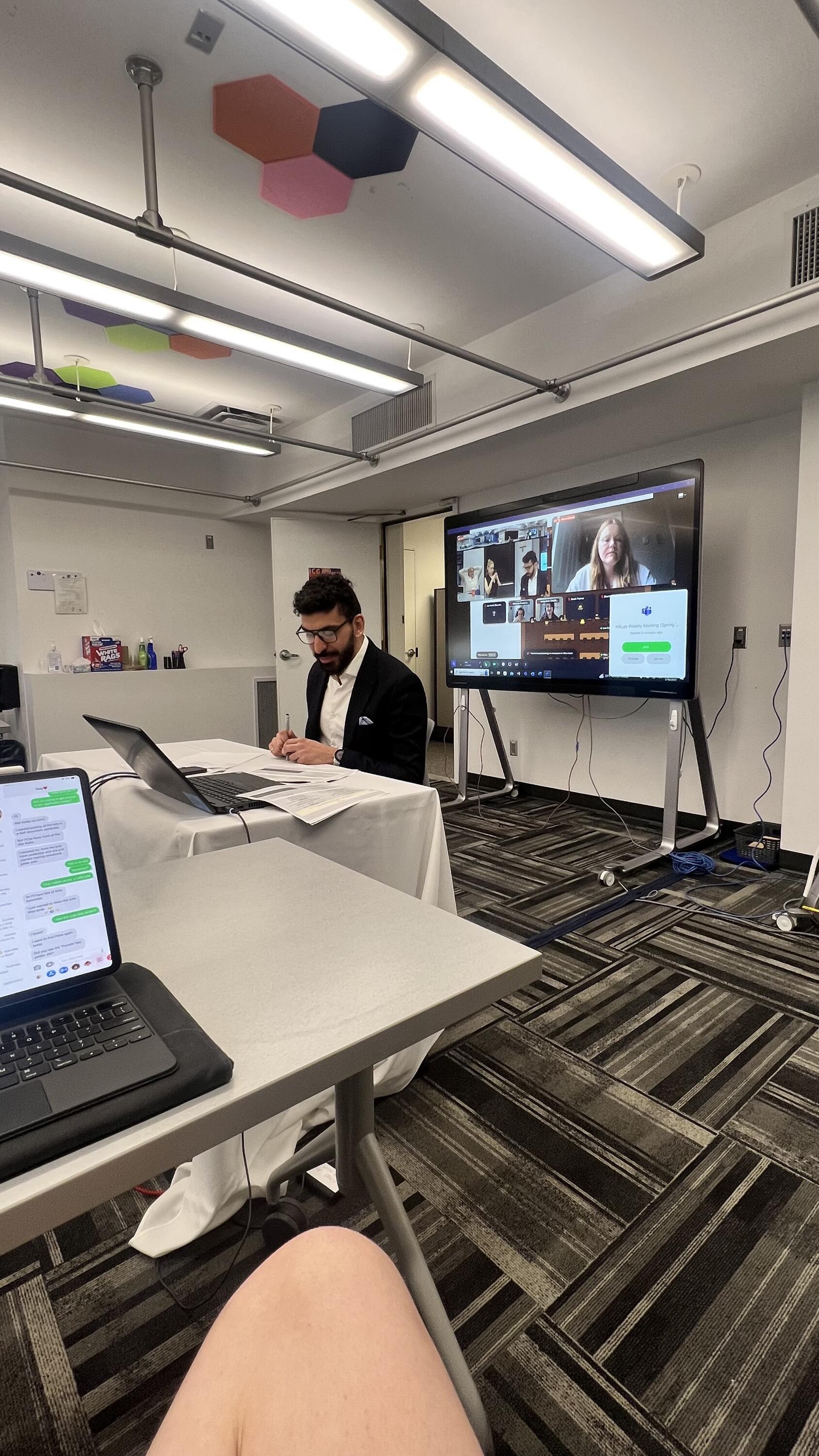
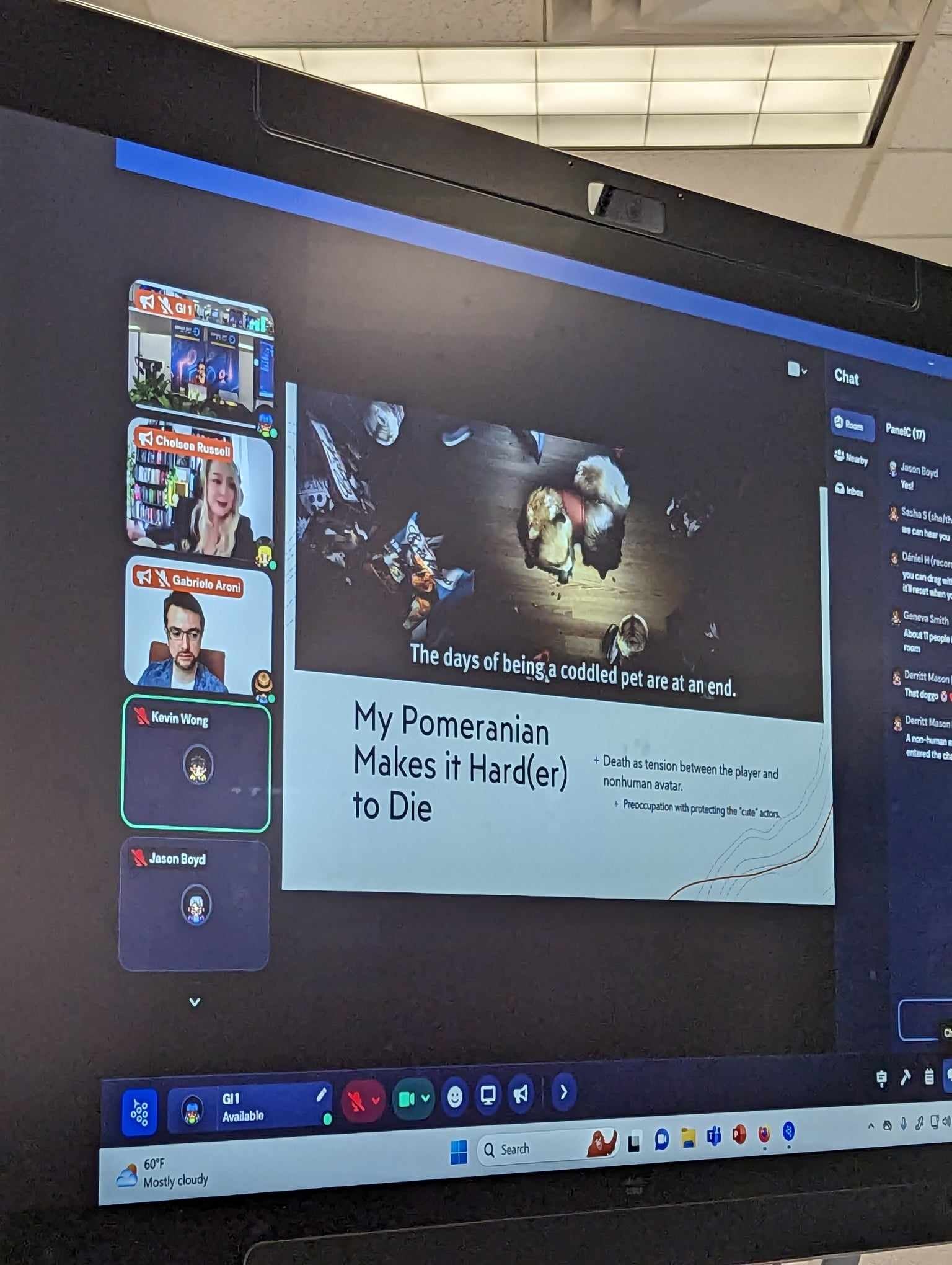
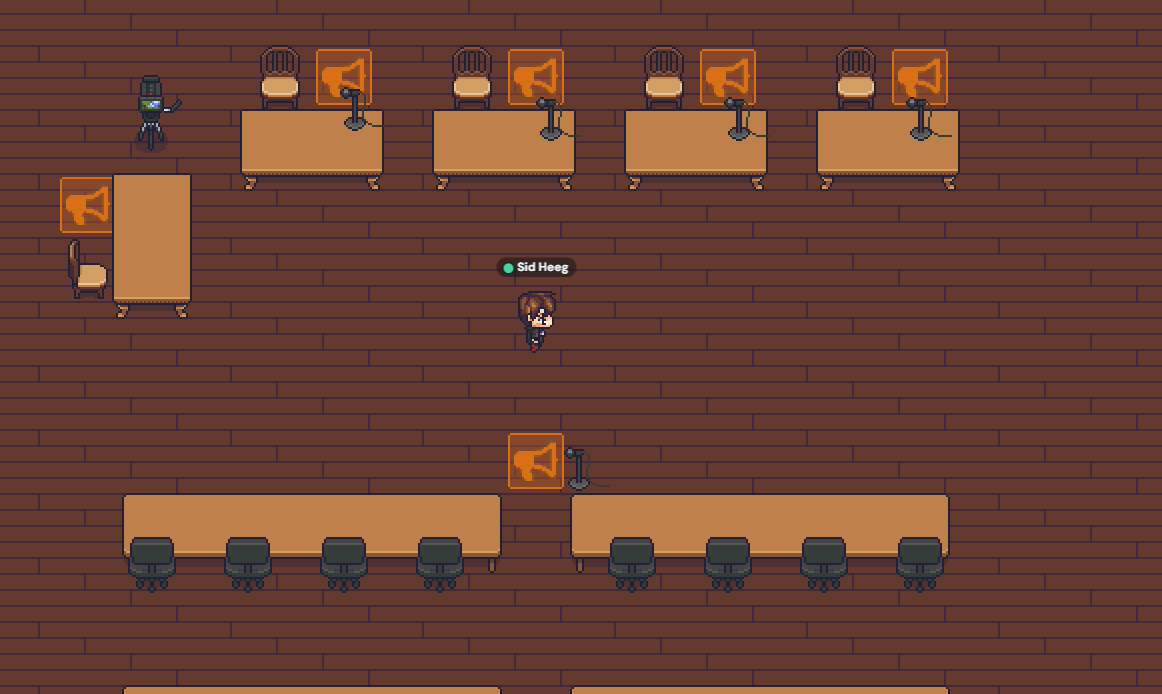
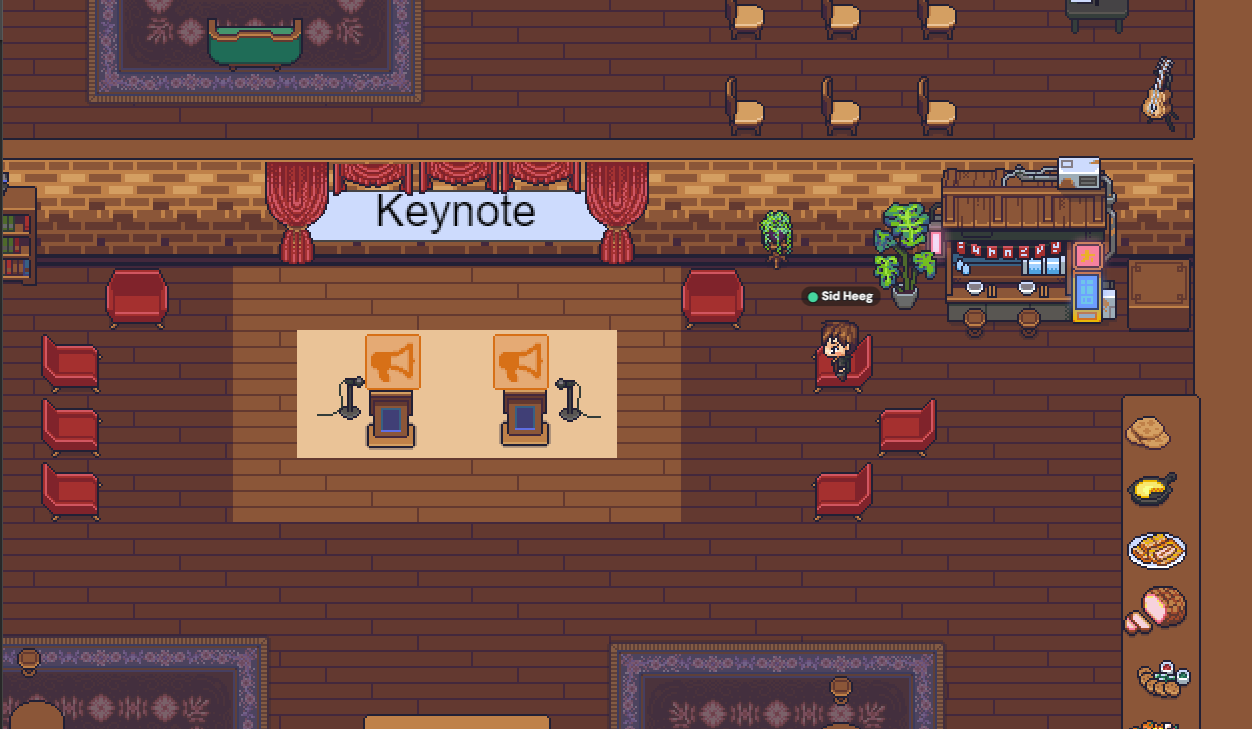
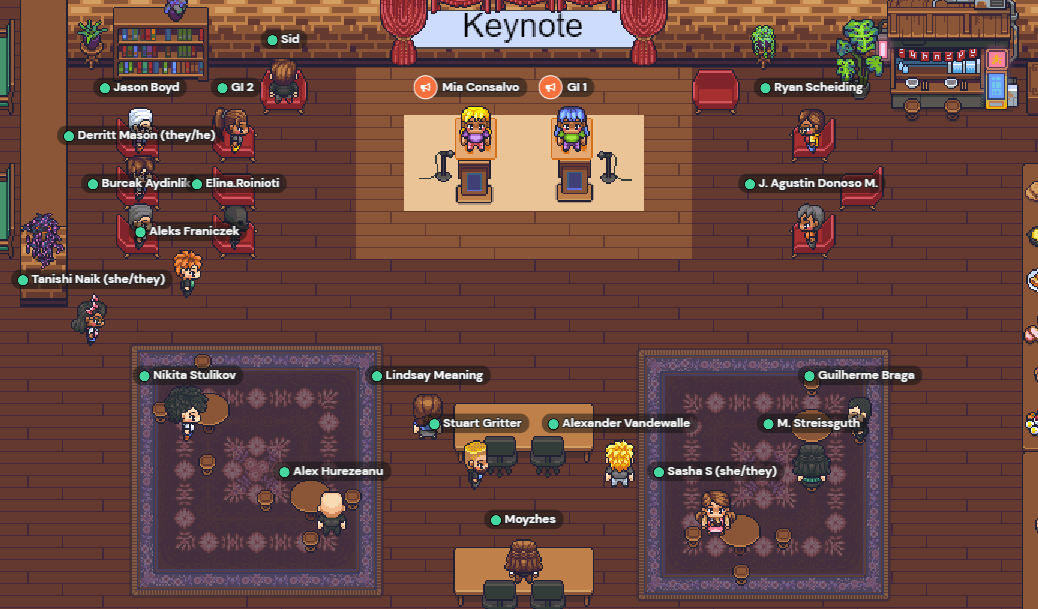
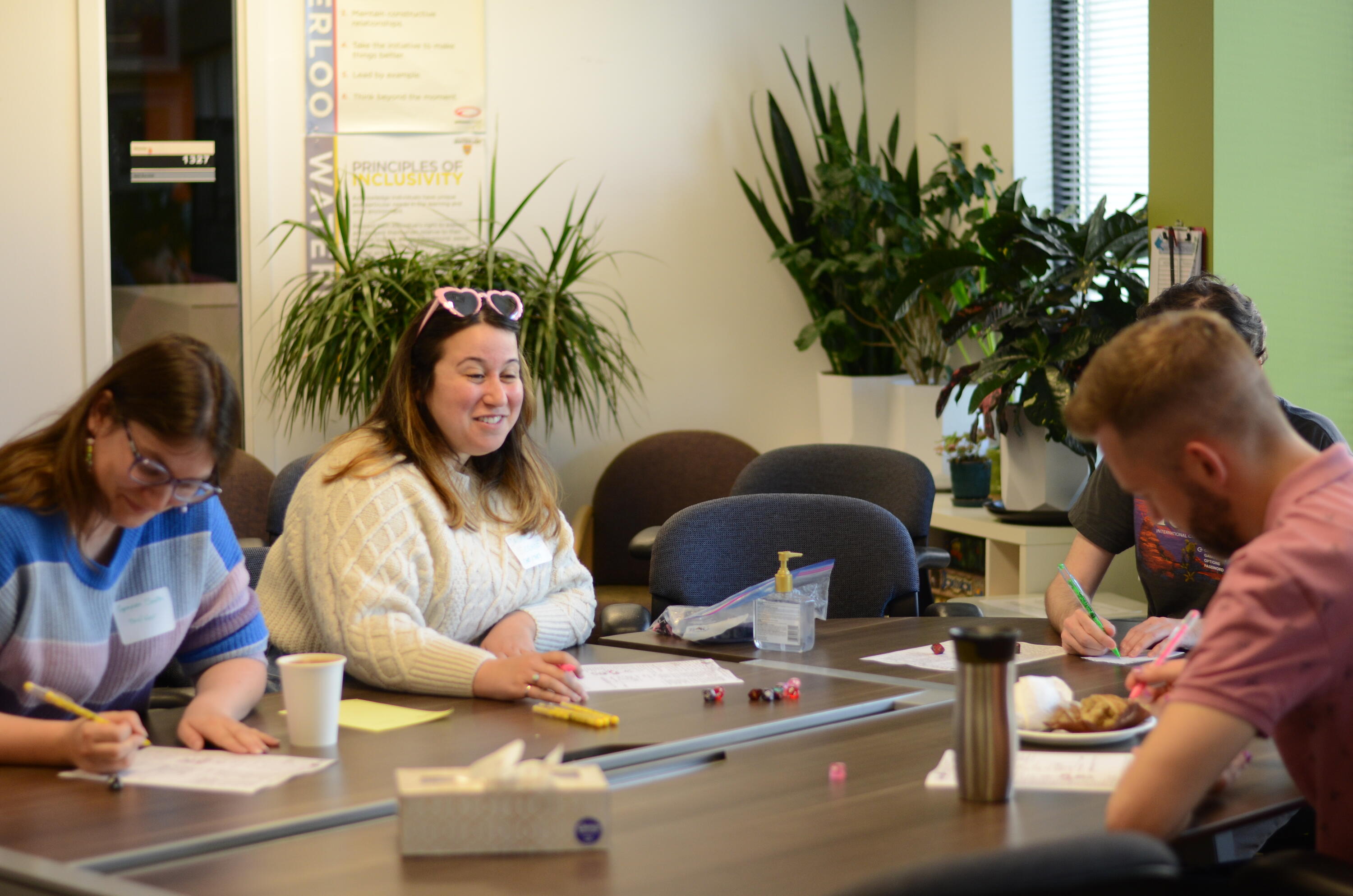
Isolation and Return
When settling on a theme for the 2023 conference, the Organizing Committee felt it was fitting to centre the conversation around isolation and return in a post COVID-19 world. While the conference has always been focused more on narrative within games, Alex was quite impressed by the wide range of presentations at the conference, going beyond the humanities-driven game studies discipline.
“I appreciated the breadth of material in the submissions,” he said. “[There were even] scientists who came out to talk about their game designs.”
For example, Dr. Sjors Groeneveld (Saxion University) presented “Gamifying Community Health Nursing Competencies: A Hybrid Learning EnvironmentDesign using Serious Gaming” which focused on a game designed to help train nursing students through forms of gamification. Dr. Katherine Shaeffer (Shadow Health) and PhD Candidate Najwa Al-Tabba (University of Florida) presented “Diversifying the 'Verse: Social Determinants of Health Meet Character Creation", a training simulation that uses forms of narrative to create character profiles and better train healthcare professionals on how to approach new patients with different backgrounds and experiences. In both cases, the developers used narratives and story lines to make the games feel immersive and improve skill and knowledge retention among healthcare professionals, demonstrating how narratives are built from the very start of game development.
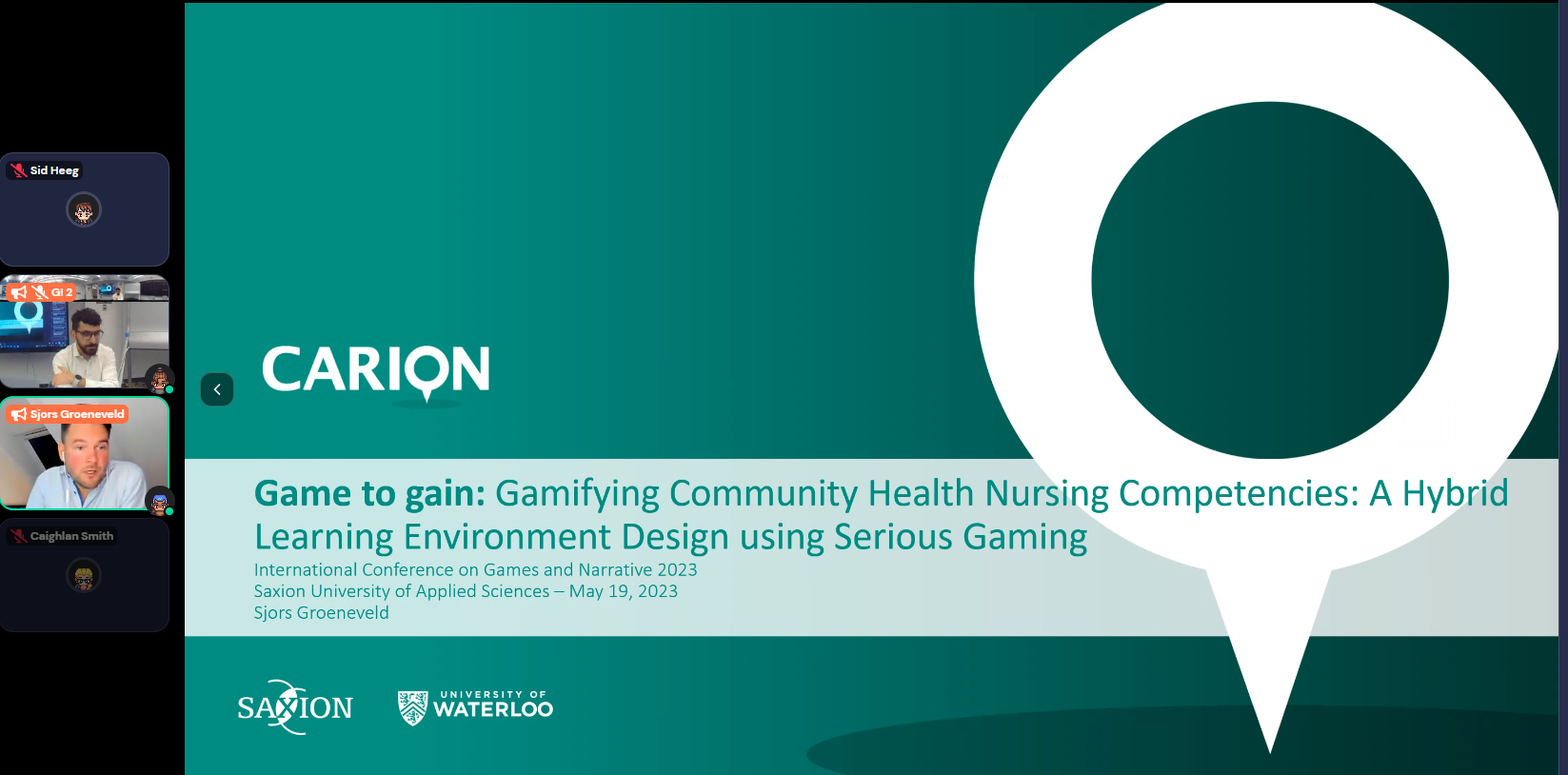
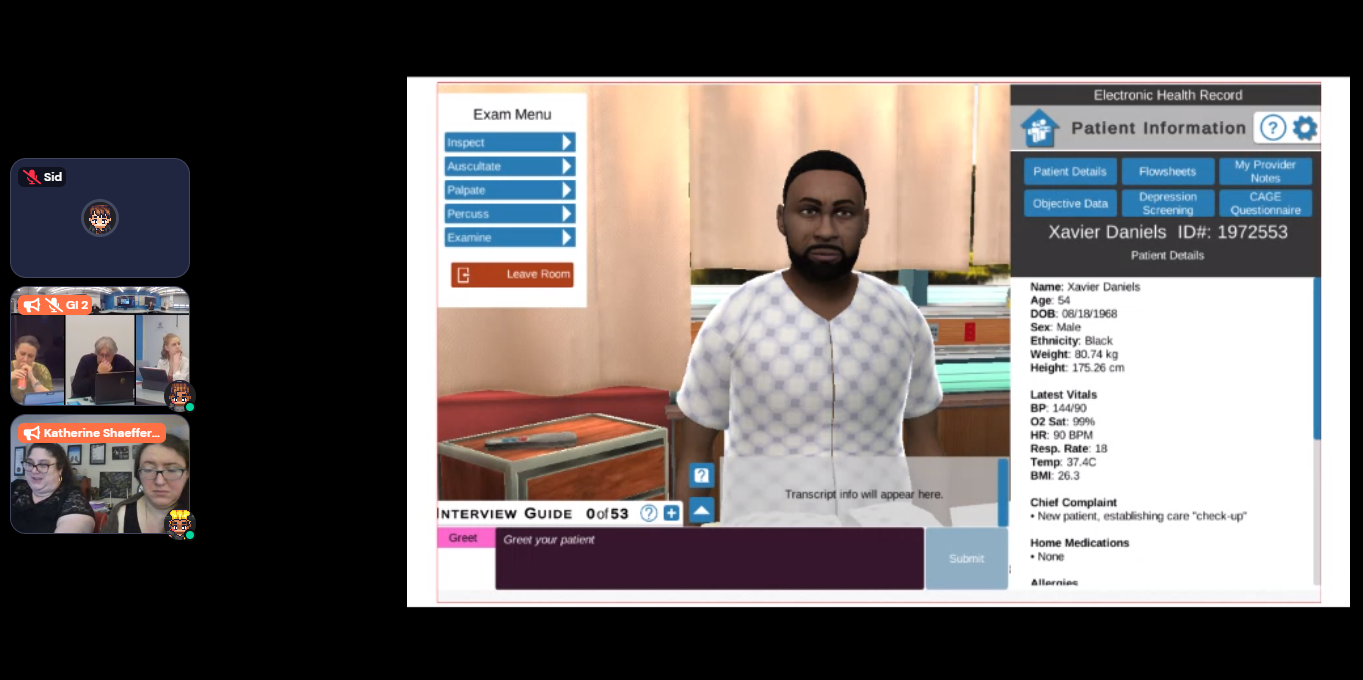
- Dr. Jakub Szamałek (Rebel Wolves, frm. CD Projekt Red), “Why is Video Game Writing Bad?”
- Dr. Jesper Juul (The Royal Danish Academy of Fine Arts), “A Short History of the Meaning of Video Games.”
- Dr. Kishonna Gray (University of Kentucky), “Narrating Race: intersectional Practices in Design and Digital Gaming”
- Dr. Mark J.P. Wolf (Concordia University, Wisconsin), “Isolation, Contemplation, and the Lonely Worlds of Single-Player Open-World Video Games”
- Dr. Mia Consalvo (Concordia University, Montreal), “An Unintended Moral Dilemma Meets Gamer Mode in Victoria 3: Or Can You Colonize in Videogames in a Non Problematic Way? (No)”
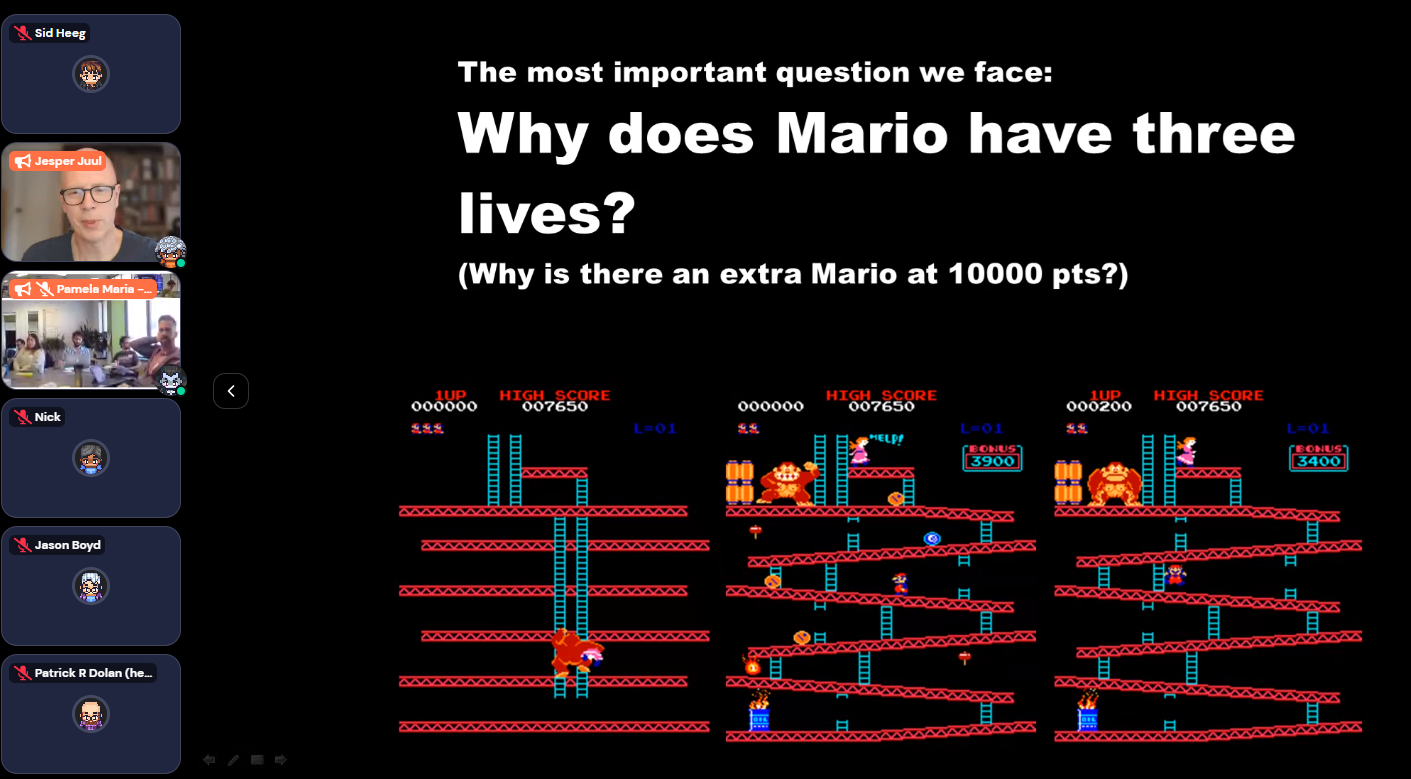
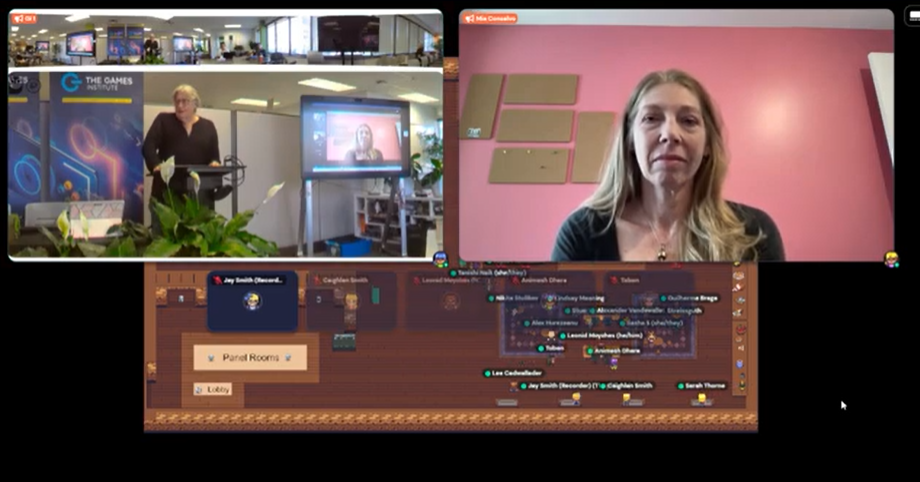
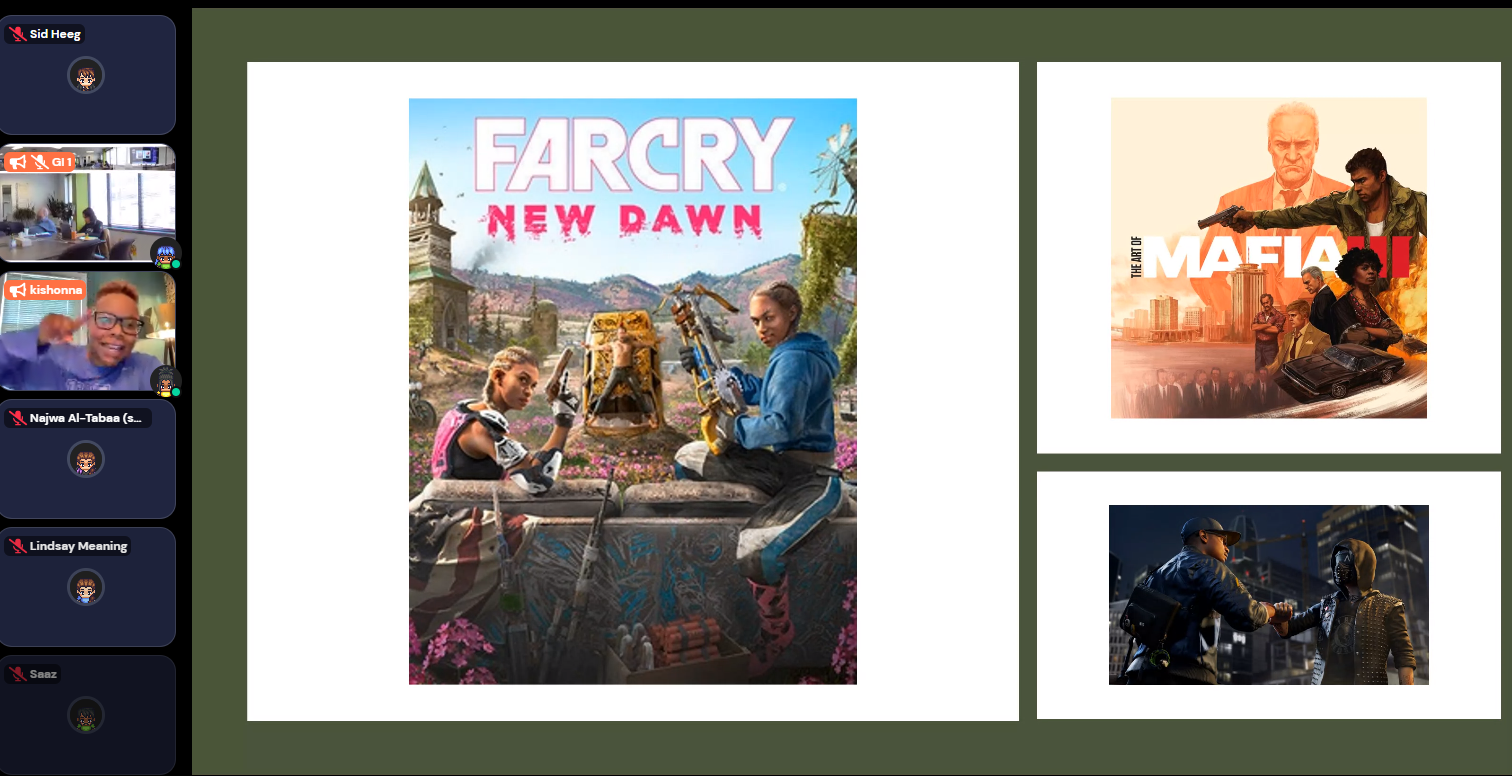
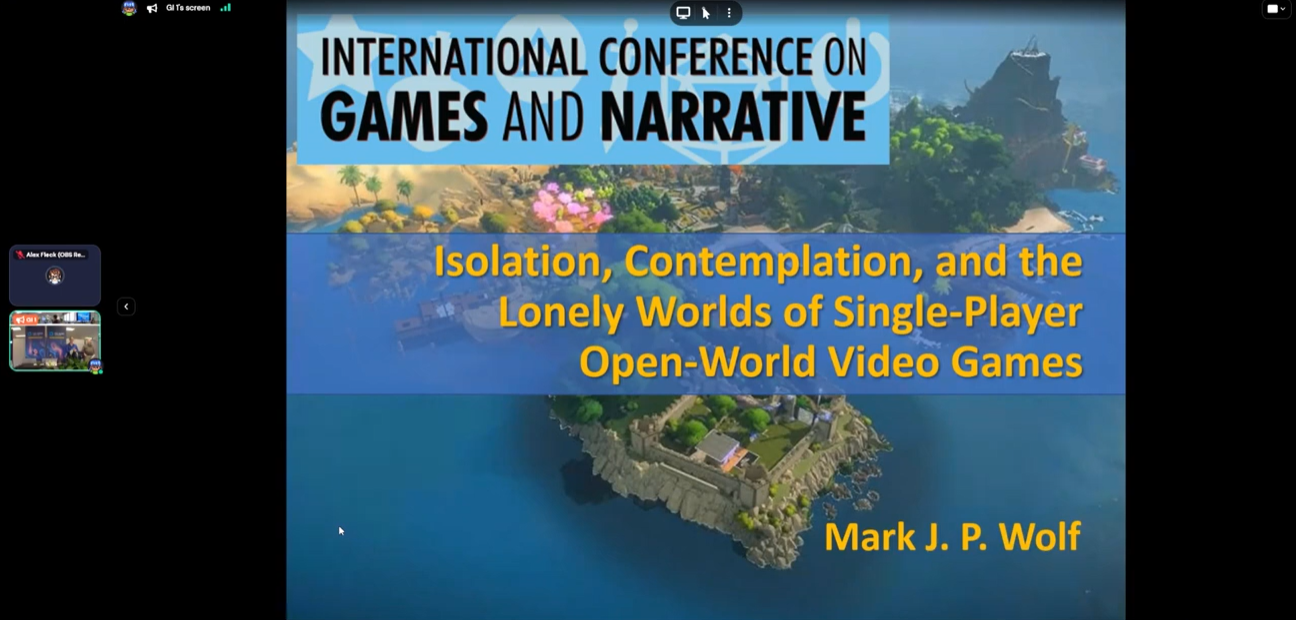
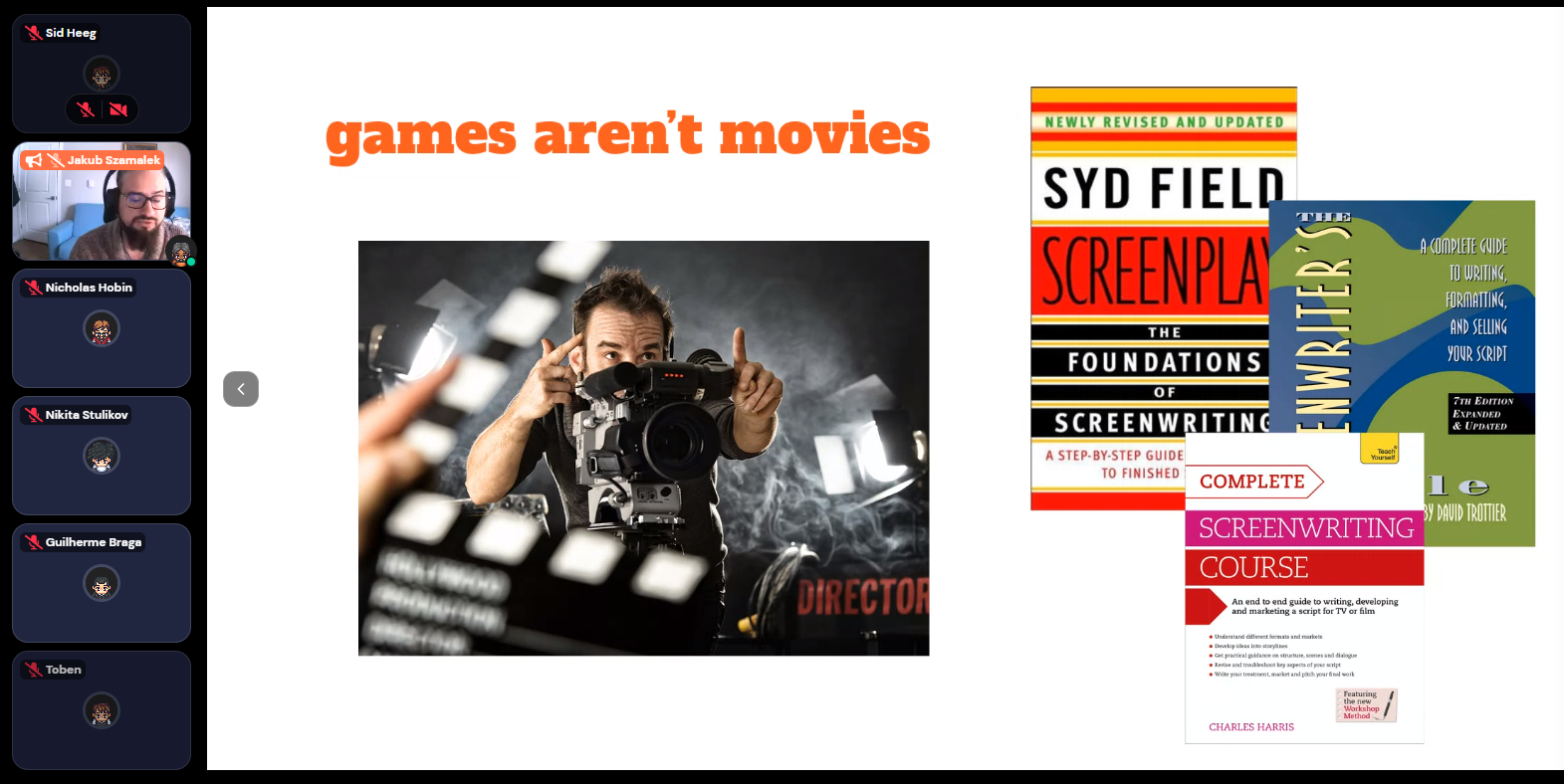
Lessons Learned and Future Plans
The delivery of the conference could not have been possible if not for the herculean effort of the GI administrative staff, the Organizing Committee, and volunteers who helped to set-up, keep engagement high, and share and promote the work being done through social media networks.
So what’s next for ICGaN? What’s next for students like Alex and Lindsay? Neither knows if they will return to the Committee for the third iteration of the conference, as they both have their dissertations to look towards in the near future. But they both came away with some ideas for the future and some tips for graduate students who might want to be involved with a conference like ICGaN.
For Alex, he considered the use of conference proceedings. "Another illuminating point from the organization of the conference is how other discplines approach conference proceedings and presentations as viable research outputs," he said. Conference proceedings are highly valued in human-computer interaction (HCI) disciplines and bring a lot of credibility to researchers. Alex added that "the humanities disciplines don't rely so heavily on conference proceedings, and it was very interesting to see people approach ICGaN in different disciplinary manners."
“I would love to actually experience the conference and the panels, rather than be part of the go-to “fix-it” people,” Lindsay said. “Perhaps in a more specialized role like just putting together a schedule?” This was the second time that Lindsay put together the schedule while taking into account different time zones, an experience she greatly enjoyed.
But what both are taking away from the experience are the many skills they learned while a part of the Organizing Committee—skills they otherwise wouldn’t have the opportunity exploring outside of a classroom. While Drs. Hirschkop and Randall initiated the idea of the conference, they greatly encouraged students like Alex and Lindsay to take charge of the logistics of the conference with support from GI administrative staff like Pamela Maria Schmidt, Research Projects Manager.
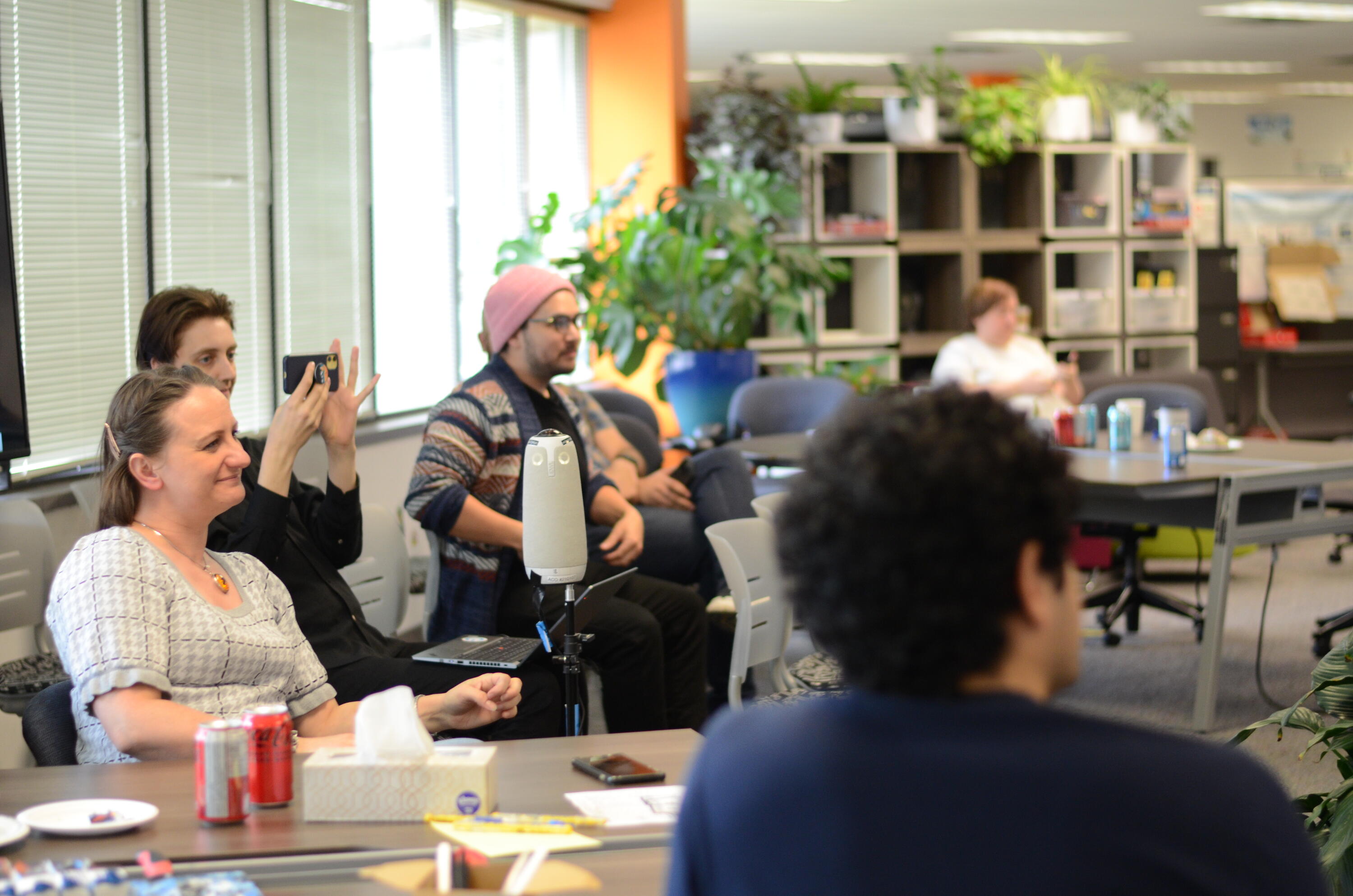
“It’s a different experience than research,” Alex added. “If it’s there, try it, and you may find you’re really enjoying it.”
Organizing a conference is no simple feat as both have learned, but they both appreciate the opportunities it afforded them. Learning how to manage a crisis, picking up project management, how to implement timelines and as Lindsay put it, “knowing when not to write that extra email.” (Emphasis added.)
Going forward, ICGaN will continue to offer a hybrid conference experience while supporting emerging scholars and a space for game designers and developers to talk about the narrative approaches of their games.

* indicates GI member
Organizing Committee:
- Aleksander Franiczek*, English PhD
- Alexander Fleck*, English PhD
- Jenn Rickert*, English PhD
- Joey Femia*, English PhD
- Dr. Ken Hirschkop*, Faculty
- Lindsay Meaning*, English PhD
- Dr. Neil Randall*, Executive Director/Faculty
- Nicholas Hobin*, English PhD
- Pamela Maria Schmidt*, Research Projects Manager
- Rebecca Sherlock*, English PhD
- Ritika Puri, English Undergraduate
GI Administrative Staff:
- Agata Antkiewicz*, Associate Director of Strategic Planning and Administration
- Sid Heeg*, Research Communications Writer
Keynote Speakers:
- Dr. Jakub Szamałek, Rebel Wolves
- Dr. Jesper Juul, the Royal Danish Academy of Fine Arts
- Dr. Kishonna Gray, University of Kentucky
- Dr. Mark JP Wolf, Concordia University, Wisconsin
- Dr. Mia Consalvo, Concordia University, Montreal
Workshop Leads
- Dakota Pinheiro*, English PhD
- Dr. Elina Roinioti, University of Peloponnese
- Toben Racicot*, English PhD
- Dr. Renard Gluzman, Haifa Center for Mediterranean History
In-person and virtual volunteers:
- AC Atienza*, Alum and Game Designer at Wiggles 3D
- Alexander Glover*, Systems Design Engineering MEng
- Daniel Herczeg, Panel Chair
- Dr. Hector Perez*, Alum and Panel Chair
- Jay Smith*, English MA
- Joe Tu*, Systems Design Engineering PhD
- Mohamed Fouda*, GC Notify and Panel Chair
- Sahand Ajami*, Mechanical Engineering MEng
- Shakib Omrani, Tarbiat Modares University MA
- Sina Torabi*, PhD Candidate, Western University
- Dr. Stuart Hallifax*, Alum and Panel Chair
- Tanishi Naik, PhD Candidate, Western University
- Dr. Will Zhao*, Faculty Member and Panel Chair
- Yang Zhong, Computer Science Undergraduate
Submission reviewers:
- Dr. Betsy Brey*, University of Waterloo
- Dr. Gerald Voorhees*, Faculty Member
- Sabrina Sgandurra*, English PhD